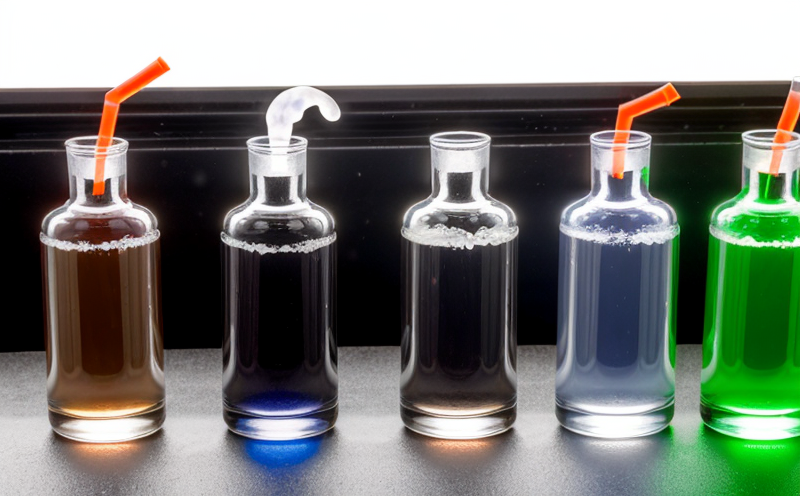Testing for exothermic reactions in chemical products
Unlocking Safety and Efficiency Why Testing for Exothermic Reactions in Chemical Products Matters
In todays fast-paced business environment, companies are constantly seeking innovative ways to streamline their operations while maintaining the highest standards of safety and quality. One crucial aspect that often goes overlooked is testing for exothermic reactions in chemical products. At Eurolab, we specialize in providing this laboratory service, which has far-reaching implications for businesses across various industries.
Exothermic reactions refer to chemical processes that release heat energy as a byproduct. While these reactions can be beneficial in certain contexts, they also pose significant risks if not properly managed. Uncontrolled exothermic reactions can lead to fires, explosions, and other catastrophic events, causing harm to people, equipment, and the environment.
In this article, we will delve into the importance of testing for exothermic reactions in chemical products and highlight the benefits of partnering with Eurolabs expert laboratory services.
The Significance of Testing for Exothermic Reactions
Chemical products can exhibit various behaviors during production, storage, and use. Some may undergo exothermic reactions, which can be either intended (e.g., in catalysts or thermal energy storage materials) or unintended (e.g., due to contamination, moisture exposure, or extreme temperatures). The potential consequences of uncontrolled exothermic reactions necessitate thorough testing to ensure the safety of people and assets.
Testing for exothermic reactions involves evaluating a chemical products propensity to release heat under specific conditions. This can be achieved through various techniques, including differential scanning calorimetry (DSC), thermal analysis (TA), and other specialized methods. By identifying potential exothermic risks, businesses can take proactive measures to mitigate them.
The Advantages of Partnering with Eurolab for Exothermic Reaction Testing
Our laboratory services at Eurolab offer numerous benefits for companies seeking to ensure the safety and efficiency of their chemical products
Risk Assessment and Mitigation By identifying potential exothermic risks, you can take targeted measures to prevent accidents, reducing liability and associated costs.
Compliance with Regulations Testing for exothermic reactions helps businesses meet regulatory requirements, ensuring compliance with industry standards and avoiding potential fines or penalties.
Improved Product Safety Our expert testing services enable you to develop safer chemical products, protecting your customers, employees, and the environment.
Efficient Operations By identifying and addressing potential issues early on, you can minimize downtime, reduce waste, and optimize production processes.
Enhanced Customer Trust Demonstrating a commitment to safety through rigorous testing can boost customer confidence in your brand and products.
Key Benefits of Exothermic Reaction Testing at Eurolab
Here are some key advantages of partnering with our laboratory services
Accurate Results Our expert team uses state-of-the-art equipment to provide precise, reliable results that help you make informed decisions.
Customized Solutions We work closely with each client to develop tailored testing strategies that address their specific needs and concerns.
Flexible Scheduling Our flexible scheduling allows you to schedule tests at your convenience, minimizing disruptions to your operations.
Comprehensive Reporting Youll receive detailed reports outlining the results of our testing, along with recommendations for mitigating any identified risks.
Frequently Asked Questions (FAQs)
Weve compiled a list of frequently asked questions to help address common concerns and provide clarity on our laboratory services
What types of chemical products require exothermic reaction testing?
Chemical products that may exhibit exothermic reactions include catalysts, thermal energy storage materials, adhesives, coatings, paints, inks, pharmaceuticals, and food ingredients.
How do you perform exothermic reaction testing at Eurolab?
Our expert team employs a range of techniques, including differential scanning calorimetry (DSC), thermal analysis (TA), and other specialized methods to assess the potential for exothermic reactions in chemical products.
What are the most common causes of unintended exothermic reactions?
Contamination, moisture exposure, extreme temperatures, or incorrect handling can trigger unintended exothermic reactions in chemical products.
How long does it take to receive test results from Eurolab?
Turnaround times vary depending on the complexity of the testing and the availability of our equipment and personnel.
Conclusion
In conclusion, testing for exothermic reactions is a critical aspect of ensuring safety and efficiency in chemical product development and use. By partnering with Eurolabs expert laboratory services, businesses can identify potential risks, mitigate them proactively, and maintain compliance with regulations. Our team at Eurolab is dedicated to providing accurate results, customized solutions, and flexible scheduling to meet the unique needs of each client.
At Eurolab, we are committed to helping companies navigate the complex world of chemical product development while ensuring a safer, more efficient environment for everyone involved. Contact us today to learn more about our laboratory services and how we can support your business in achieving its goals.




